How to make any applesauce in 5 steps
All it takes is apples, water, and heat
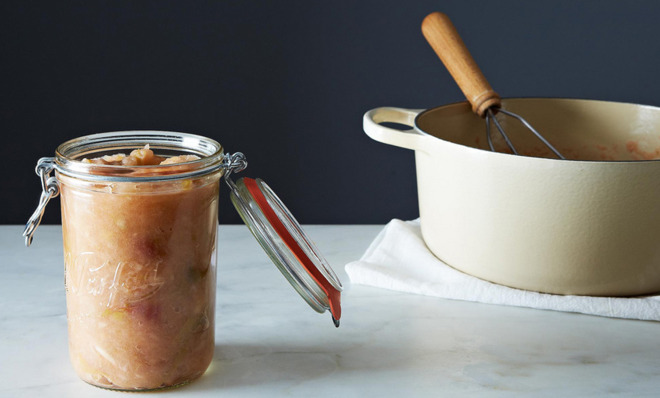
A free daily email with the biggest news stories of the day – and the best features from TheWeek.com
You are now subscribed
Your newsletter sign-up was successful

When I think back to my preschool years, scrunchies, and mock turtlenecks were very much in style. At snack time, applesauce was served; a generic and predictable version. It had a yellowish hue, was semi-tart, and not especially tasty.
I would never have thought twice about applesauce, until one fall day, my family made a batch at home — hardly recognizable from its jarred kind I ate at school. Maybe it was the color, so rosy and mauve, or maybe it was the naturally sweet flavor. Regardless, thus began my passion for homemade applesauce.
This applesauce stands alone, but you'll want to put it on latkes, pork chops, blintzes, or maybe just add a dollop of whipped cream, and a pinch of cinnamon — however you choose it will be sinlessly addictive.
The Week
Escape your echo chamber. Get the facts behind the news, plus analysis from multiple perspectives.

Sign up for The Week's Free Newsletters
From our morning news briefing to a weekly Good News Newsletter, get the best of The Week delivered directly to your inbox.
From our morning news briefing to a weekly Good News Newsletter, get the best of The Week delivered directly to your inbox.
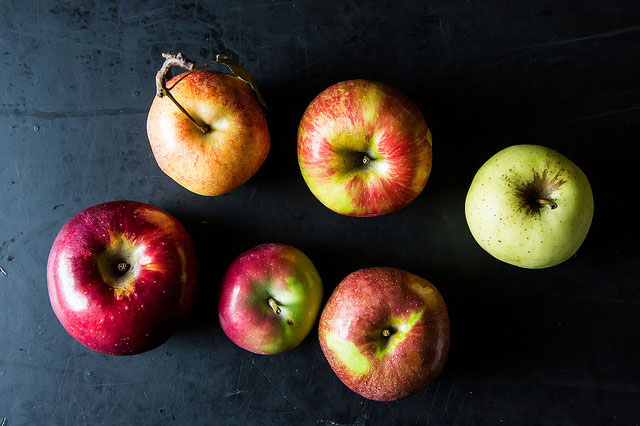
The secret to your sauce is the apples. Macintosh, Cortland, Empire are all great, but your favorite variety will work too. I always add Winesaps, as they give it that lustworthy pink color.
If you can get to an orchard or a farmers market, buy seconds! No need for perfect apples here; seconds are the cheaper ugly ducklings, too bruised for sale at full price. You are about to transform them into something beautiful soon enough.
In terms of quantity, grab as many as you can carry — a peck (approximately 30 apples) yields about six quarts of sauce.
How to make applesauce in five steps:
A free daily email with the biggest news stories of the day – and the best features from TheWeek.com
1. First, the only labor-intensive part: Wash and prep the apples. The one mandatory step here is coring; peeling is completely optional. Cooking with the skin on will result in a more flavorful sauce. If you are feeling super rustic, include skin in the final product (More on this.).
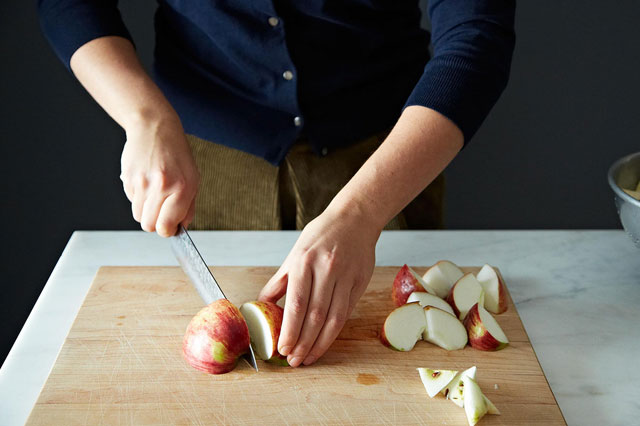
2. If you want to infuse a little flavor, add cinnamon sticks now; two is good.
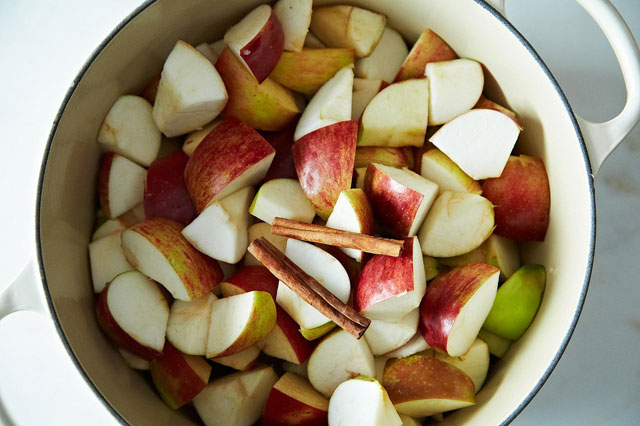
3. Place apple pieces in a large pot, add water until there is 1/4 inch of water covering the bottom surface of the pot. Cook on medium heat, with the cover on to prevent the water from evaporating.
Once the apples start bubbling, turn down to low heat, add more water if necessary (no more than 2 tablespoons at a time). Periodically stir, while enjoying a mulled cider.
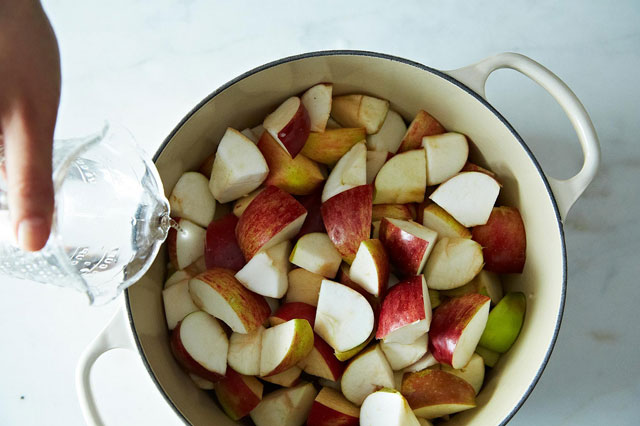
4. Once the apples get to your desired level of softness, remove the cinnamon sticks.
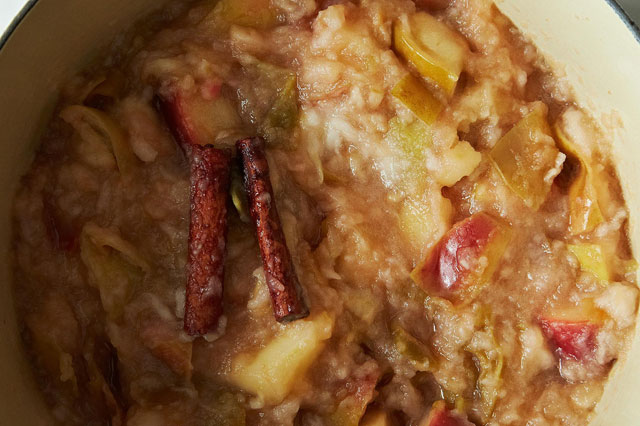
5. Finish off with a few stokes from the potato masher.
Now, taste for sweetness. You might be surprised at how perfect it is, and not want to add any sugar. But if you like it on the sweeter side, try adding raw cane sugar (turbinado). It adds a caramel-y quality and some heft. Cook for another minute to dissolve the sugar.
For a smoother texture you can very easily run the mixture through a food mill or mesh strainer in batches, removing the skin.
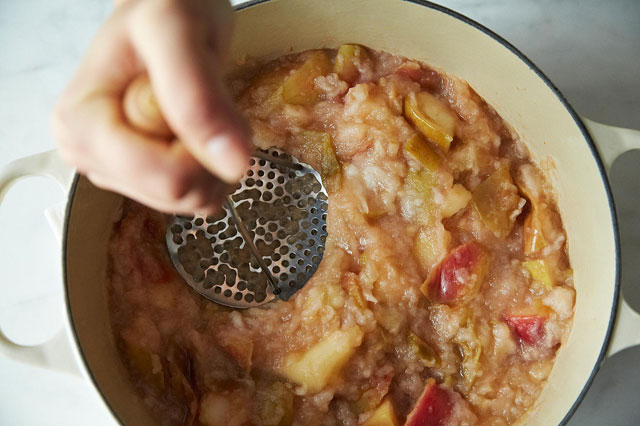
When serving, sprinkle on some freshly grated nutmeg or cinnamon.
Throw it in the fridge, freeze in plastic containers, or can. Just be careful not to leave any lying around unattended. It's known to disappear.
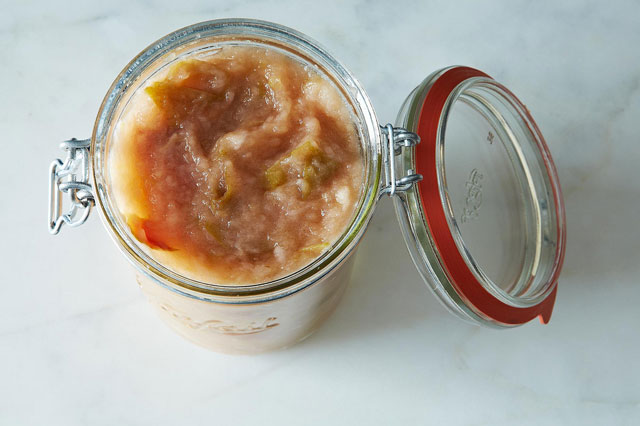
Photos by James Ransom
More from Food52...
-
 How the FCC’s ‘equal time’ rule works
How the FCC’s ‘equal time’ rule worksIn the Spotlight The law is at the heart of the Colbert-CBS conflict
-
 What is the endgame in the DHS shutdown?
What is the endgame in the DHS shutdown?Today’s Big Question Democrats want to rein in ICE’s immigration crackdown
-
 ‘Poor time management isn’t just an inconvenience’
‘Poor time management isn’t just an inconvenience’Instant Opinion Opinion, comment and editorials of the day